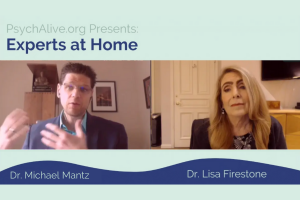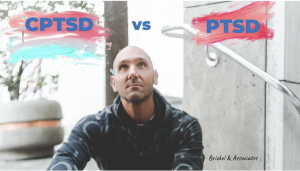How to Become Your Best Self

The month of December is not only a time of holiday festivities; it is also a time of reflection. In the midst of the merriment, we find ourselves assessing the year that is passing and thinking about our expectations for the upcoming one. More often than not, we are disappointed that, once again, we have failed to live up to most of the resolutions we made last New Year’s.
The solution is not to sit down and make a new list of resolutions for 2011 and vow to be even more resolved. This never works, and one year from now we will be where we are today: once again disappointed in ourselves. This is not to say that people can’t change, they can; this is just not the way to go about it.
Change takes more than some end-of-the-year self-reflection and beginning-of-the-year resolve. It takes work; ongoing, year-long effort. We have to take a serious look at ourselves to find out what we want to change. Then we have to investigate ways that we are standing in the way of making that change. And finally, we have to take actions to overcome barriers and reach our goal.
Deciding what we want to change isn’t so simple. Is this a change that reflects who we really are, or does it reflect someone else’s expectation of us? Is that yearly resolution to be more financially successful really our goal, or is it what our parents always wanted for us? Maybe the reason we have failed is that what matters more to us is doing work that is meaningful.
Does this desire to change come from a constructive part of our personality or does it reflect a critical, self-hating part of us that does not have our best interest in mind? I describe a division that exists within each of us in Conquer Your Critical Inner Voice:
All of us are divided within ourselves and have a basic conflict in relation to our goals and aspirations in life. On the one hand, we have feelings of warm self-regard and traits and behaviors that we like or feel comfortable with in ourselves. We have natural tendencies to grow and develop and to pursue our personal and vocational goals, as well as desires to be close in our relationships and to search for meaning in life. These tendencies are referred to as The Real You because they are made up of a friendly, compassionate view of yourself.
On the other hand, we have an unfriendly, critical view of ourselves. Often these destructive thoughts and attitudes become intense and take precedence over our more realistic or positive ways of thinking. They influence us to limit ourselves and sabotage our successes and, at times, to feel hostile and cynical toward other people. In some cases, under stressful conditions, this negative way of thinking can increase and gain more control over our actions and can actually lead to seriously self-destructive behavior. This negative side, as well as its critical, angry point of view, is referred to as The Critical Inner Voice because it is the part of you that is turned against your real self. It encourages and strongly influences self-defeating and self-destructive behavior and promotes angry or hurtful attitudes toward other people as well.
Depending on which part of your personality is more prominent at the time, The Real You or The Critical Inner Voice, you will express an entirely different point of view, and your behaviors and interactions with others will be different.
Watch a Whiteboard Video on The Critical Inner Voice
Finding out what we want to change takes some soul-searching in order to separate from the influence of others and from our critical inner voice, so that we can identify aspirations that reflect who we really are.
Once we have identified what we want to change about ourselves, we have to understand how we are getting in the way of accomplishing that. Undoubtedly, the behavior or trait that we have chosen to challenge has been causing us misery for a long time. The reason that it is so resistant to change is that it is tied to psychological defenses that we developed early in life. No matter how undesirable this behavior is to us now, at one time it served the purpose of relieving us from pain.
Our defenses helped us when we were young, but now, as adults, they limit us and interfere with our developing to our full potential. These psychological defenses can be compared to our body’s physical reaction in the case of pneumonia. In this disease, our body’s defensive reaction is more destructive than the original assault from the bacteria that invaded our body. The presence of bacteria in our lungs causes changes in our immune system, which sends out antibodies to meet the invasion. However, the magnitude of this defensive reaction leads to congestion that is potentially dangerous to us.
In a similar way, the defenses that we erected as small, vulnerable children to protect ourselves in painful situations may become more harmful than the original trauma we endured. In this sense, our psychological defenses become the basis for our later problems in living.
By understanding how our childhood defenses still play out in our adult lives, we will be able to understand the internal obstacles that we encounter when we try to change old habit patterns and behaviors.
Finally it is time to take action. When we stop the behavior, we often experience anxiety from being without a lifelong defense, even though it is outmoded and no longer necessary in our life today. Unfortunately, most of us view anxiety as something bad, as an indication that something is wrong with us. We have learned that we should get rid of anxiety, take a pill or do whatever we can to quell the feeling.
Remember that anxiety almost always accompanies emotional growth. It is often an indication that we are making constructive changes in our lives. If we learn to tolerate the increase in anxiety and voice attacks that always accompany any positive change in our ways of thinking about ourselves, the anxiety and voice attacks will gradually decrease or fade into the background. It’s as if the voice is attacking us for stepping out of line, for not going along with our internalized negative prescriptions for living. If we sweat it out and stick with the new behavior, the attacks start to recede. The situation is very much like a parent who gets tired of nagging and finally gives up.
The following suggestions make it easier for us to gain control over the behavior that we want to change:
1) Identify the inner voices that urge you to go against your resolve and engage in the negative behavior. Identify both the negative voices (like those that say you are going to fail on your diet) and the seemingly positive ones (like those that say you have been doing so well, you deserve that dessert.)
2) Become aware of the times when you feel the most tempted to indulge in the negative behavior. Recognize that at these times, you will need to be ready to sweat through the feelings of anxiety, anger or sadness that emerge when you refuse to give in to temptation.
3) Discern the triggers, that is, the specific cues in the environment that increase your desire to engage in the negative behavior. At these times, voice attacks usually arise to weaken your resolve. By anticipating the events or situations in your everyday life that trigger you, you will be empowered to resist the temptation to act out at these times.
This doesn’t have to be another one of those New Year’s when we swear to improve ourselves only to end the year having changed nothing and even more disillusioned with ourselves. If we are willing to do the work, we can change. And we will find that as we challenge our negative traits and the critical inner voice that supports them, our real self–the core of our personality–will increasingly emerge and take precedence over the enemy within. We will begin to regain feelings we have been defended against for years, and become more aware of our wants, desires, and personal goals. By the time 2011 comes to an end, we will not only have changed our negative traits, but we will have uncovered dimensions of our personality that are a fundamental part of our unique identity.
Tags: aspiration, assesment, change, critical inner voice, effort, expectations, goals, life, personal goals, positive thinking, real-self, relationships, self development, self-improvement, self-reflection









Leave a Reply